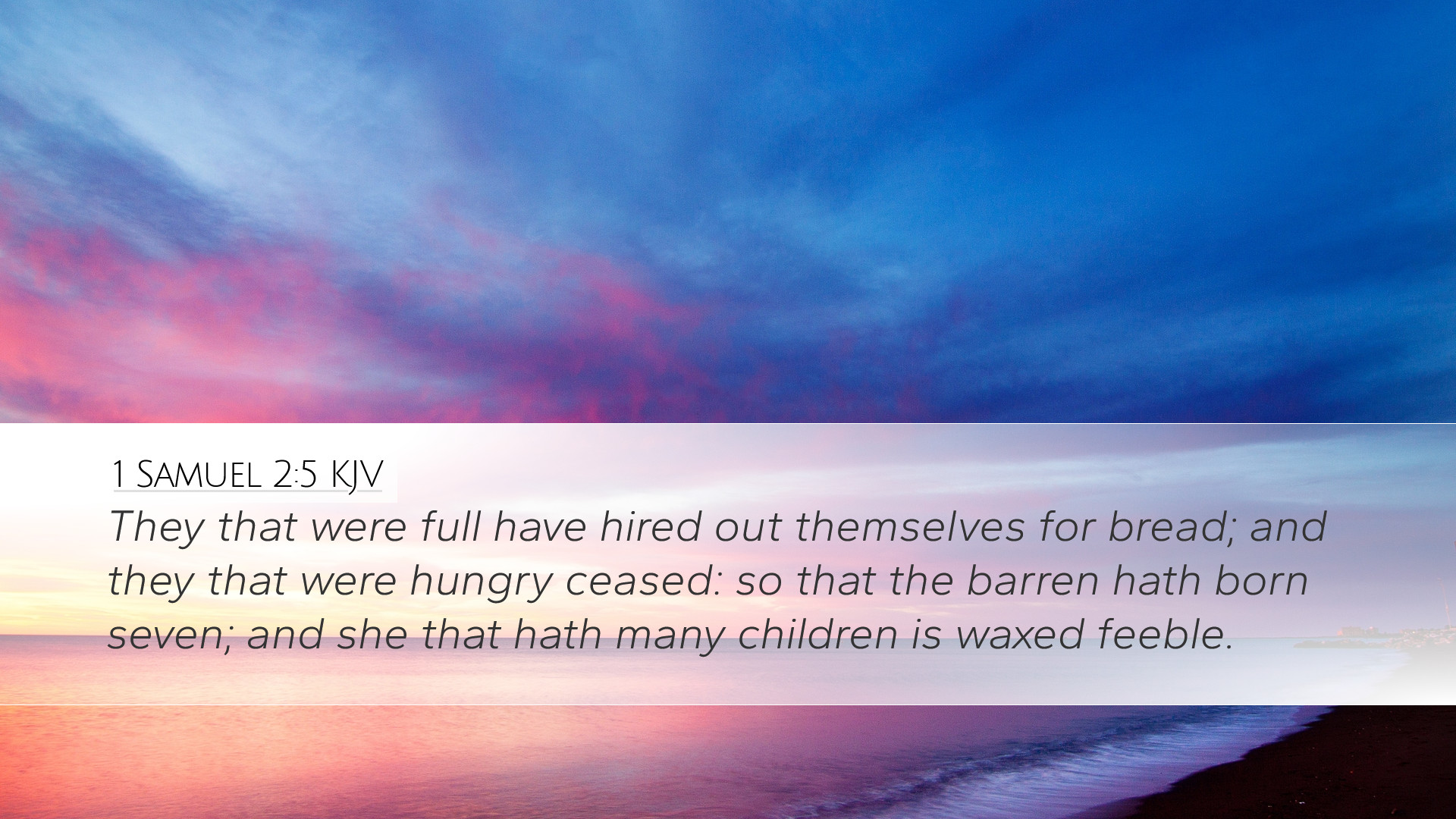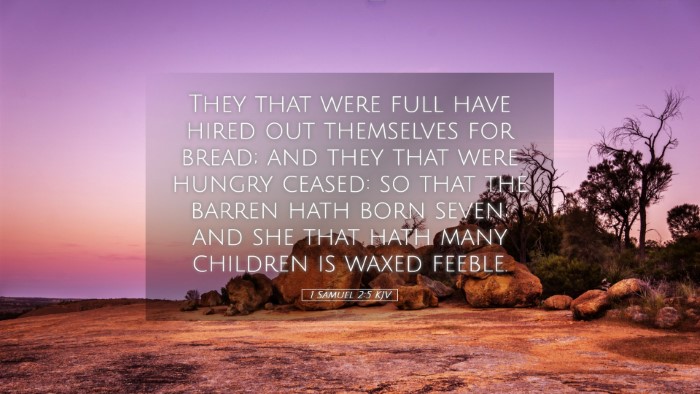Commentary on 1 Samuel 2:5
Scripture: "The barren hath borne seven; and she that hath many children is waxed feeble." (1 Samuel 2:5, KJV)
Introduction
The verse 1 Samuel 2:5 is a profound statement regarding the sovereign workings of God in reversing human fortunes. It forms part of Hannah's prayer of thanksgiving, reflecting on themes of barrenness, divine intervention, and the ultimate triumph of the faithful.
Contextual Overview
This prayer is set in the context of Hannah's personal plight and God’s gracious response. After years of being unable to conceive, Hannah entrusts her prayer to God, whose faithfulness leads her to eventually bear Samuel, a significant figure in biblical history.
Key Themes
- Divine Sovereignty: The verse highlights God's control over human circumstances.
- Reversal of Fortunes: The juxtaposition of the barren and the fertile serves as a metaphor for spiritual realities.
- Faith and Expectation: Hannah’s faith informs our understanding of expectancy in prayer and supplication.
Insights from Commentaries
Matthew Henry's Commentary
Matthew Henry emphasizes that this verse illustrates the particular observation of divine providence in the lives of individuals. He notes how the barren woman, considered to be in social disgrace, is blessed with children, indicating God's mercy and grace. Henry states, "God has his ways of bringing down the proud and exalting the humble." He further expounds that the number seven indicates completeness, representing a full reversal of Hannah's shame into honor.
Albert Barnes' Notes on the Bible
Albert Barnes provides an exposition on the meaning of ‘seven’ in this context. He remarks that it signifies completeness and indicates God’s ability to abundantly bless those who trust Him. Barnes interprets the verse as a divine assertion that God's plans are often contrary to human expectations, reinforcing the idea that those who appear strong may fade, while those who are weak can find strength in God. "The apparent weaknesses of existence often serve to manifest God’s strength," he states.
Adam Clarke's Commentary
Adam Clarke offers insights into the cultural implications of this verse, noting how children were viewed as markers of honor and status. He explains that this verse serves as an encouragement not only to Hannah but to all believers who find themselves in desperate situations. Clarke emphasizes God's ability to uplift the lowly, as illustrated by Hannah's change in fortune. He asserts that the passage reminds us of God's ultimate justice and care for the disadvantaged.
Theological Implications
The theological implications of 1 Samuel 2:5 extend beyond personal trials into a broader understanding of God’s redemptive narrative. This verse serves as a microcosm of the biblical theme of God's faithfulness to the needy and the reversal of societal norms. It echoes throughout Scripture, culminating in the New Testament, where Jesus proclaims blessing upon the meek and the poor in spirit (Matthew 5:3).
Practical Applications
- Encouragement in Prayer: Hannah’s prayer serves as a model for faith-filled supplication.
- Hope for the Hopeless: This scripture is a reminder that God hears the cries of the desperate and can grant unexpected blessings.
- Counter-Cultural Values: The verse challenges societal definitions of worth and success by valuing spiritual over material wealth.
Conclusion
1 Samuel 2:5 encapsulates profound truths regarding God’s character and His dealings with humanity. It assures the faithful that no situation is too dire for God’s intervention and that His ways are not our ways. As we reflect on this verse, may we be encouraged to trust in God's providence and to appreciate His capability to transform lives.


